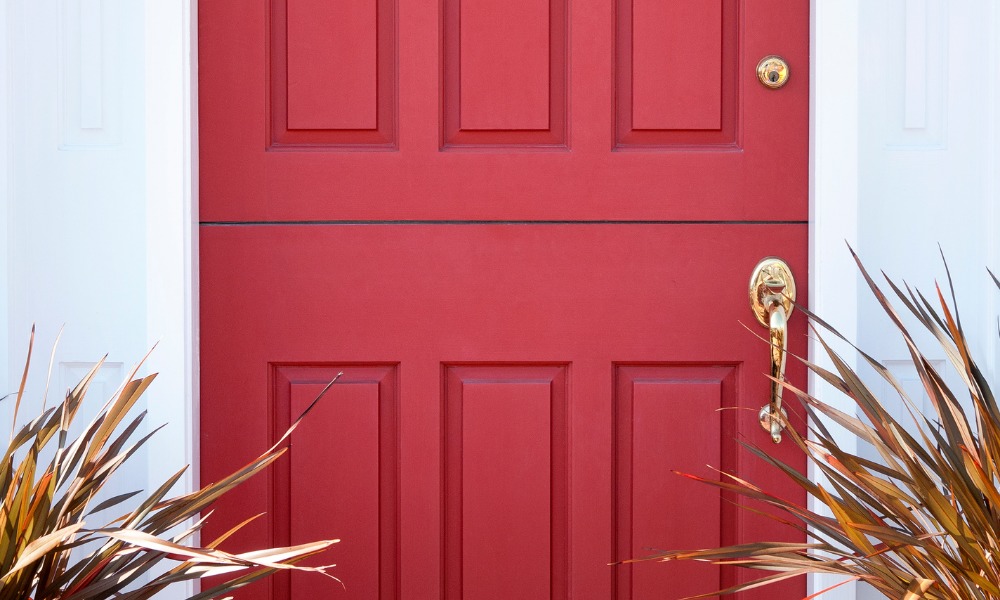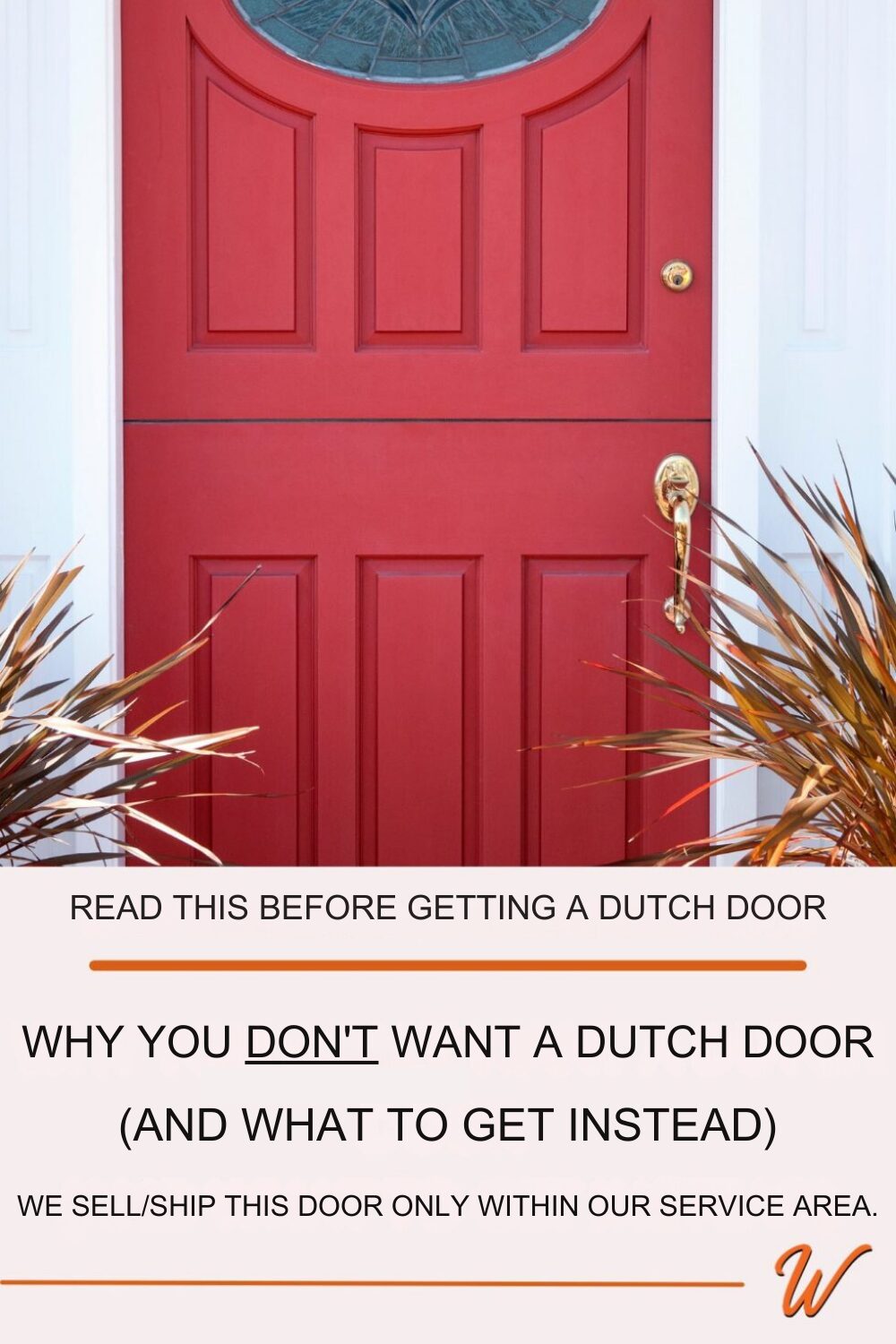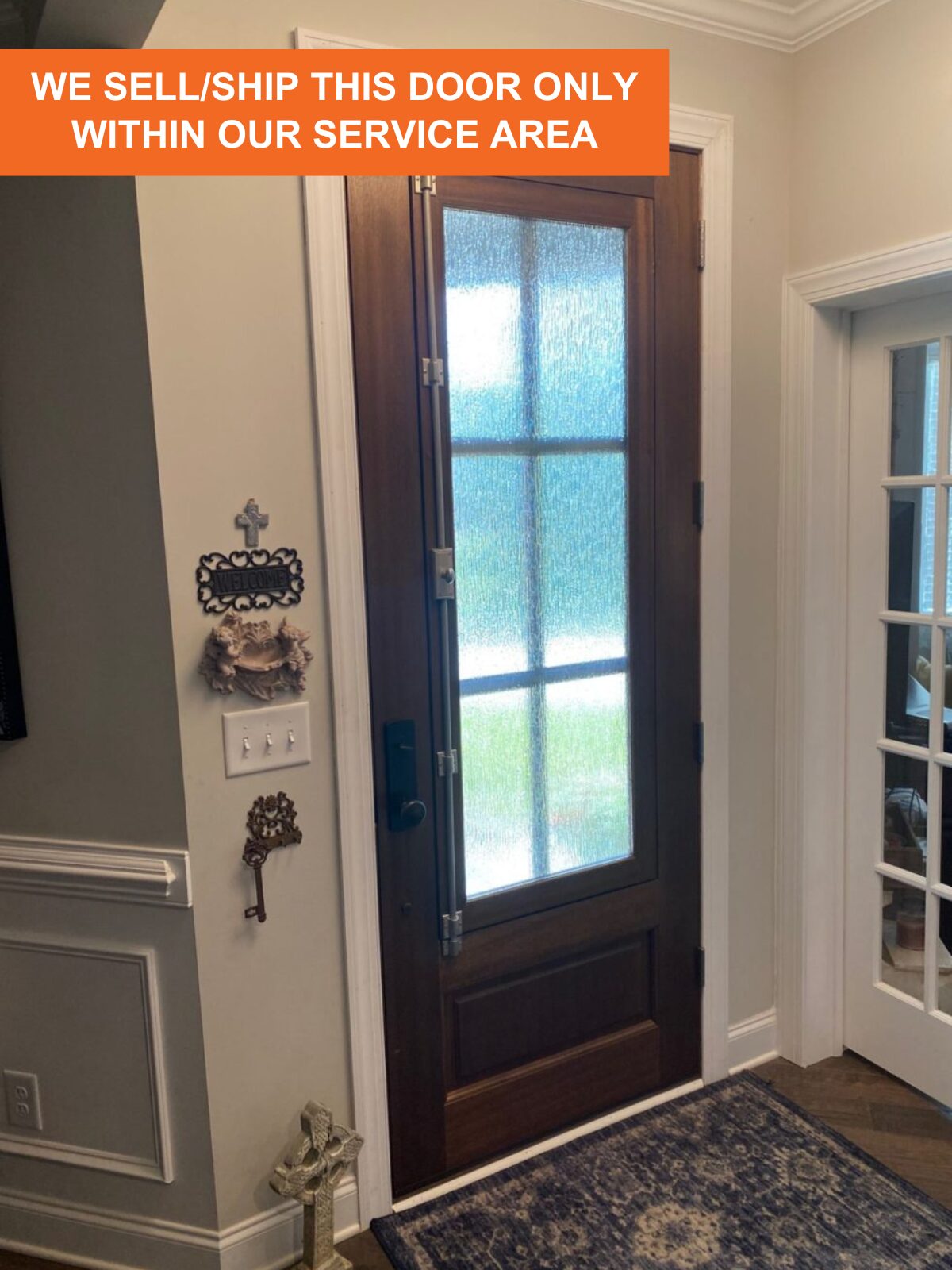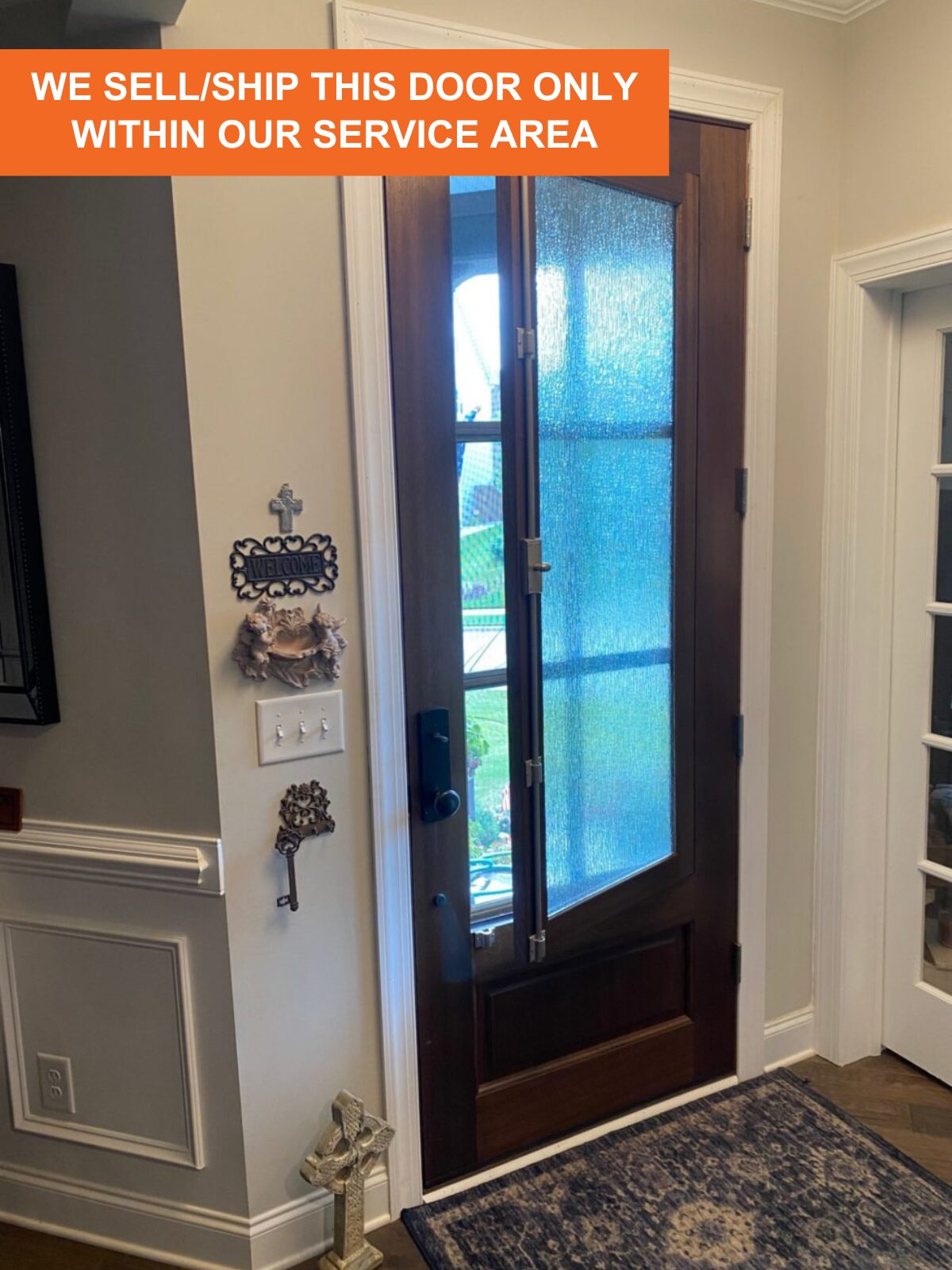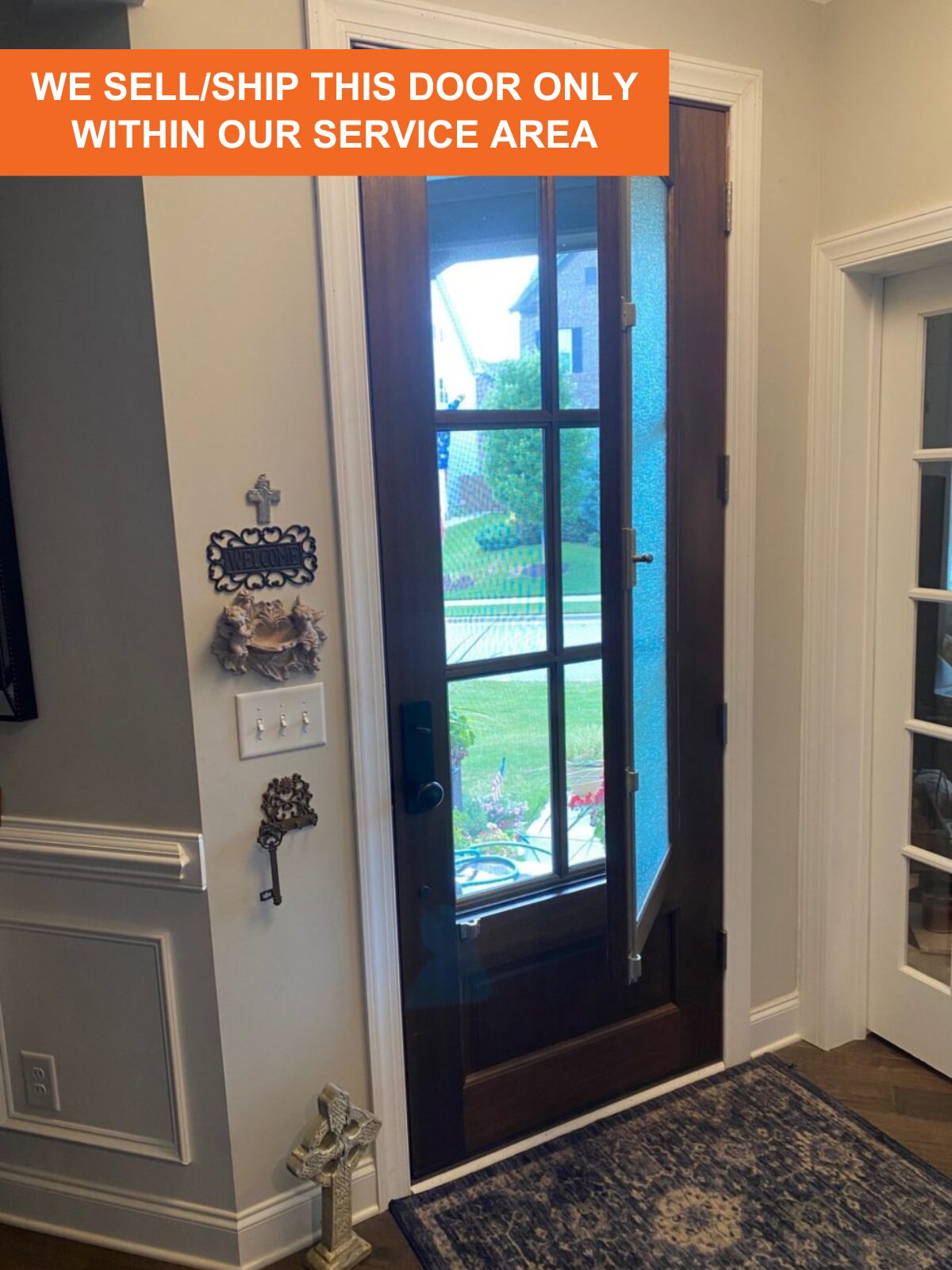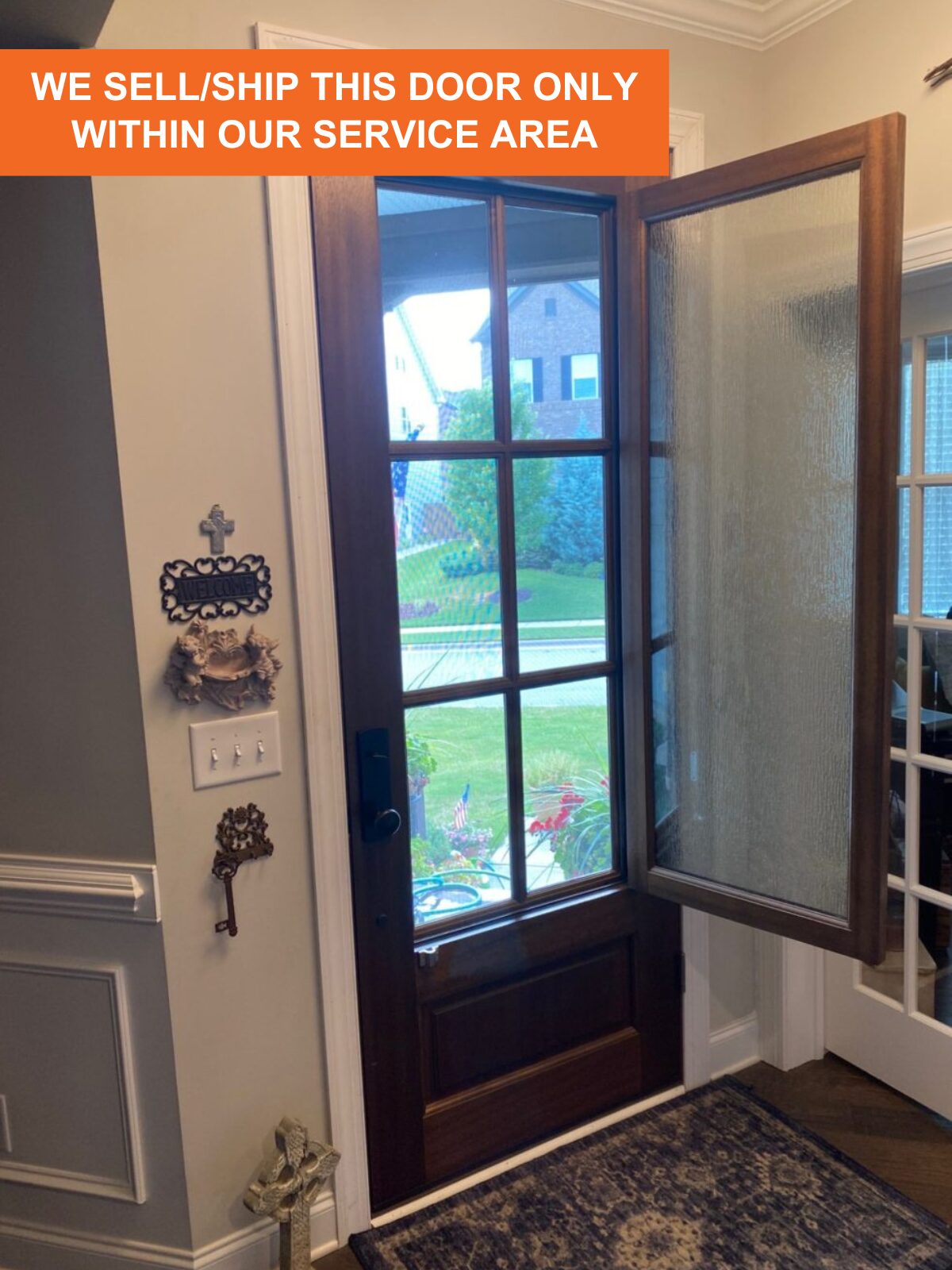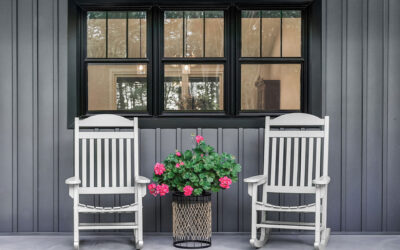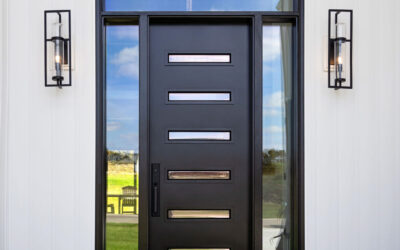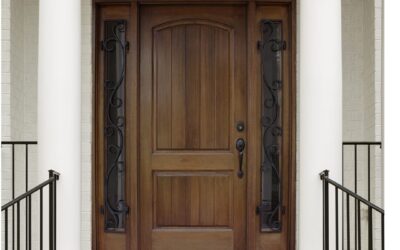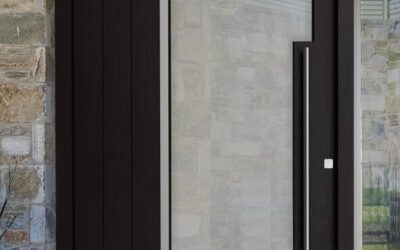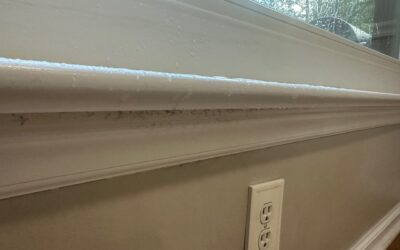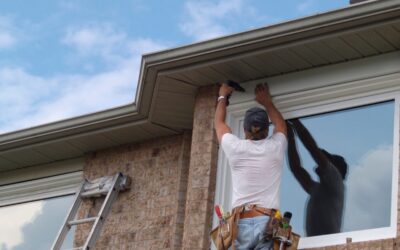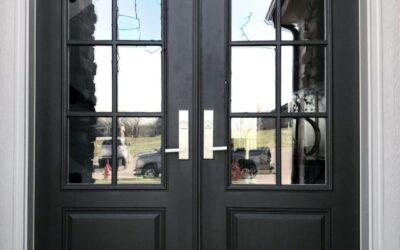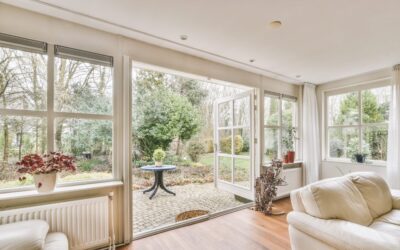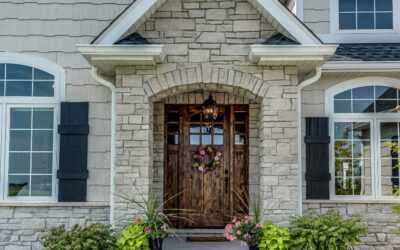If you’re keeping up with door trends, then you know that Dutch Doors are having a moment. From magazines to Pinterest boards, it seems that Dutch Doors are everywhere right now.
You may be wondering “Should I get a Dutch Door?”
Spoiler alert, our answer is a resounding “No!”
Read on to learn all the reasons that we tell visitors to our Apex, NC door showroom to avoid these trendy doors. We’ll also share with you the irresistibly stylish alternative that’ll leave you wondering why you ever wanted to get a Dutch Door.
What is a Dutch Door?
A Dutch door is a door that is split in half horizontally. You may have only the bottom closed so that the top swings freely open, or you may close both halves.
Dutch Doors are known by many other names, including
- Stable doors
- Barn doors
- Double hung doors
- Half doors
Whatever you call them, these doors have a long history.
From their name, you may not be surprised to learn that Dutch doors originated in the Netherlands.
In the 1600s, these doors were popular among farming families who used them to keep children in and animals out. When Dutch settlers came to the US, they brought the style with them in rural parts of New England.
Since then, Dutch doors have been adapted to suit many home architectural styles, from farmhouses to traditional and even contemporary designs.
Why you Don’t Want A Dutch Door
We can’t argue that Dutch doors are charming, and make your home instantly memorable.
However, there are four reasons that Dutch doors are a poor exterior door choice for most homeowners.
1. They are Easily Damaged by Kids and Pets
One of the selling features of a split panel door is its ability to keep kids and pets in by opening only the top portion of the door.
However, in our experience, the top edge of the bottom door panel of many Dutch doors is quickly damaged in homes with pets and kids. Think claws of pups eager to greet houseguests. Dents and scrapes from errant toys and sippy cups.
Even a sturdy fiberglass door is not indestructible and will show wear from frequent battering.
By giving kids and pets a ledge to try to see and maybe even climb over, you’re risking the top of that door edge becoming quite damaged in short order.
Dutch Doors can also Cause More Damage to Kids and Pets
We should also mention that the split in the door panel can pinch little fingers and paws if closed too quickly.
2. Especially in the Apex, NC Area, They Allow Bugs and Pollen into your Home
Here in central North Carolina, there’s always something in the air. In March and April, it’s the gritty yellow pollen that blankets every surface it touches. Then, from May till October, it’s mosquitos and damp humidity.
Dutch doors make a lot of sense in other parts of the country with milder weather and less insect activity. But most Dutch door owners we know in the Apex area say they don’t open the top panel of their door nearly as often as they thought they would. The main reasons are usually pollen, bugs, and humidity.
While it’s true you can install a retractable screen on many Dutch doors, we find that this defeats the overall aesthetic purpose of the door.
Keep reading to learn about the door we love to recommend as an alternative to Dutch doors. The way the screen is incorporated is so stunning, that you’ll think of it as a design bonus rather than a necessary aesthetic evil.
3. Dutch Doors Cost More
This point may not surprise you, but Dutch Doors generally cost more than their single-panel counterparts. There are a few reasons why:
- Additional hardware is needed (hinges, locks, knobs, etc.). For added security, many Dutch door owners will add a deadbolt to the top door panel, since the doorknob and lock are usually on the lower panel.
- An extra weathertight seal is needed between the two panels
- Installation is trickier and may be more costly to ensure that each piece of the door is properly plumb, level, and square. This may require additional installation time, shimming equipment, etc.
4. Split Panels May Weather Inconsistently, Leading to Maintenance Headaches
Sunlight causes much of the weathering that damages doors here in the Carolinas. In a Dutch door, the two-door panels may receive inconsistent sunlight (such as if the top panel is covered by an overhang, but the bottom panel receives more daytime sun). It’s possible that one part of a Dutch door may begin to warp or show other signs of weathering before the other does.
This can lead to difficulty when performing annual maintenance. For instance, it may be difficult to re-stain the door and get an exact color match if the panels are showing different wear patterns.
More troublingly, though, the reduced surface area of the smaller panels may cause other problems. One part of the door may begin to warp or come out of alignment sooner than it would if a full-size door were in the same space.
Over time, this can mean more frequent maintenance needs, and possibly even more regular replacement.
Our Favorite Alternative to a Dutch Door
So, you love the unique charm of a Dutch Door. You also like the idea of having a door that can keep little ones and pets indoors, while still allowing you to talk to someone outside.
But, the additional maintenance needs and potential for damage have you convinced that a Dutch door won’t work for your home.
Happily, we have a phenomenal alternative for you.
The Breezeport line by DSA Doors has all the great features of a Dutch door, without the safety and weather concerns. The built-in venting allows you to partially open the door without risking damage to the panel.
Built in screens will keep bugs out, but they don’t detract from the look of the door. And the venting mechanism screams industrial chic rather than a ‘standard use feature’.
This door offers tons of customization options (including arch tops and double doors).
The DSA Breezeport door seen from inside a home, with the venting window closed.
The DSA Breezeport door from inside a home with the venting window partially open. The option for privacy glass gives homeowners security, while opening the venting window lets you open up your home.
The DSA Breezeport door from inside a home with the venting window partially open. Screens between the six-lite portion of the door keep bugs out.
The DSA Breezeport door with the venting window fully opened. With screens to keep bugs out, this door is a stylish, functional, and unique alternative to a Dutch Door.
In short, if you’re looking for a door that’s just as winning as a Dutch door, but without the hassle of split panels, we think you’ll love this line.
Reliable Door Installation Company Serving Apex, NC, and Surrounding Areas
Whether you’re looking for a new front door that’s trendy or traditional, you want to work with professionals who can help you find the new front door you’ll love.
That’s where Window Works Co. can help.
When you’re ready to start looking for your new front door, use the calendar below to schedule a consultation call with us! We can’t wait to help you find just the right front door.

